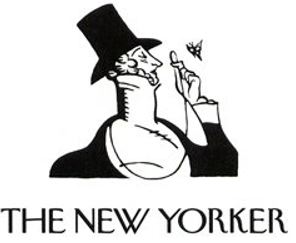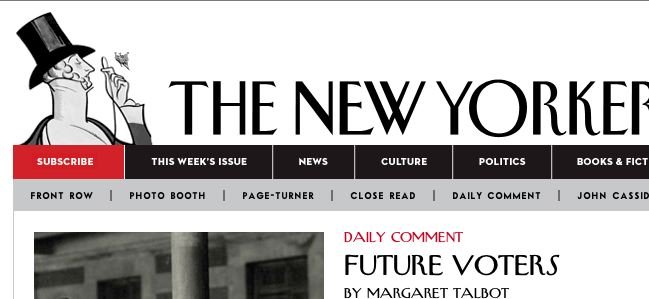Self Plagiarism, Ethics and the Case of Jonah Lehrer
 Jonah Lehrer is widely-heralded as a rising star in the science writing community. He’s written columns for The New York Times, Wall Street Journal and the Boston Globe. He also recently left a job writing for Wired Magazine to write for The New Yorker, often considered one of the most prestigious publications in the U.S. This is on top of his three books, including the recent best-seller “Imagine: How Creativity Works”.
Jonah Lehrer is widely-heralded as a rising star in the science writing community. He’s written columns for The New York Times, Wall Street Journal and the Boston Globe. He also recently left a job writing for Wired Magazine to write for The New Yorker, often considered one of the most prestigious publications in the U.S. This is on top of his three books, including the recent best-seller “Imagine: How Creativity Works”.
However, that promising career and stellar reputation is now in peril. Allegations were brought forth that Lehrer had reused language from an earlier column of his in the Wall Street Journal in a recent column for The New Yorker. The allegations spread like wildfire through the blogging world, which in turn found at least 13 other instances of language reuse by Lehrer, each pulling from earlier works of his in newer columns.
The New Yorker, where much of the reuse took place, has since added an editorial statement, expressing regret at the duplication, to each of the columns involved. The publication’s editor, Nicholas Thompson, has said that “It’s a mistake. We’re not happy. It won’t happen again.” Lehrer has also apologized for the reuse saying that “It was a stupid thing to do and incredibly lazy and absolutely wrong.”
However, the case appears to be far from resolved and the Internet seems to be largely divided on the issue with some saying that the term self-plagiarism should not even exist and others calling for Lehrer to be dismissed as a columnist (pointing out possible instances of plagiarism of third parties as well).
So what should become of Mr. Lehrer? It’s tough to say and the end decision is up to his bosses at The New Yorker, but it’s definitely clear that this is not an issue that’s going away.
The Ethics of Self-Plagiarism
 In a previous post about self-plagiarism, I said that much of the ethical issues surrounding self-plagiarism depended on the expectations of the audience and people who had commissioned the works.
In a previous post about self-plagiarism, I said that much of the ethical issues surrounding self-plagiarism depended on the expectations of the audience and people who had commissioned the works.
The basic idea is that, in cases where the audience doesn’t expect a new or original work, such as with legal writing and stump speeches, self-plagiarism is generally seen as acceptable. However, judging from the reaction of both Lehrer’s employers and his readers, it seems pretty obvious that there was at least a reasonable expectation that the words would be original, if not the ideas.
If both his audience and his employers were expecting original work and Lehrer did not provide it, there’s no doubt that there was a breach of trust and an ethical issue that needs to be dealt with.
However, that doesn’t mean that Lehrer should be fired either. I’m a major believer that, when dealing with plagiarism issues, intent matters. After all, in matters of traditional plagiarism, one usually does not treat a case of a student forgetting a citation the same as a student who copied a paper wholly from the Web.
But the intent of self plagiarism is usually fairly clear. This isn’t a matter of someone not paraphrasing adequately or omitting citations, self-plagiarism is almost always a shortcut, a means to save time and effort of saying something similar in a different way.
Furthermore, Lehrer is not a college student new to academic writing or a foreign grad student unfamiliar with citation rules, He is a robust academic, a graduate from Columbia and a Rhodes scholar, and, hopefully, is well familiar with the rules of citation and reuse of work.
In short, Lehrer clearly did something wrong and should have known better. His apology seems to indicate this to be the case. While his fate is decision of his editor, it’s clear that his reputation, along with the reputation of The New Yorker, is going to take a deserved beating.
Addressing the Term “Self-Plagiarism
Though it’s not completely relevant to this case, many have begun to question whether the phrase self-plagiarism is appropriate to describe what Lehrer (or anyone else) did.
Personally, I’ve never shied away from the term self-plagiarism and I use it without any sense of irony. The reason is that self-plagiarism, as with traditional plagiarism, is a breach of trust. As an author or other content creator, when you present a new work you are claiming, intrinsically at least, that the work is original and that has two components:
- That the work is yours.
- That the work is new.
Traditional plagiarism violates both components but self-plagiarism still violates the second.
However, these ethical issues can generally be avoided, as mentioned above, by steering the audience’s expectation away from originality. Simply make it clear, either in advance or in the work itself, that some of it is from a prior work and the ethical concerns go away.
After all, plagiarism, no matter what variety, is about honesty. If you’re up front with what you’re doing, it may still be lazy writing, but at least is is honest and that eliminates the much more serious problems that come with trying to hide what you are really doing.
Bottom Line
At this time, it seems as if Lehrer is going to keep his post and be allowed to continue writing, albeit with a much closer eye on his work.
Is it really worth ending his career over this? It’s hard to say without a more final tally of the reuse. However, publications are likely to look at this more from a legal standpoint than an ethical one. If his actions didn’t bring legal risk to the company, which they likely didn’t, and Lehrer’s reputation isn’t so tarnished that he isn’t a valuable asset, then most likely they’ll keep him on.
In an ideal world, there would be set punishments for plagiarism and they would be metered out fairly to all people across all walks of life. However, you don’t have to spend a lot of time dealing with plagiarism to know that isn’t the case.
Most likely, when this is done, Lehrer will emerge from this battered but alive. Barring any major changes in attitude or new revelations, his career does not appear to be in danger.
While I personally feel that Lehrer owes more than an apology, including a more formal investigation and, possibly, other disciplinary action, I recognize that it most likely isn’t practical for various reasons.
This is just another part of why dealing with plagiarism online can be so frustrating.
Want to Reuse or Republish this Content?
If you want to feature this article in your site, classroom or elsewhere, just let us know! We usually grant permission within 24 hours.
